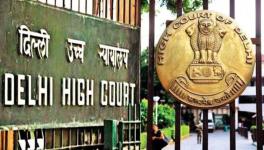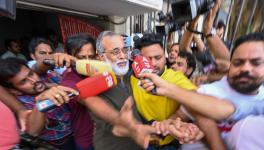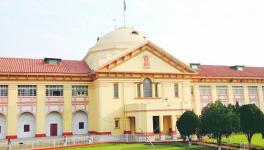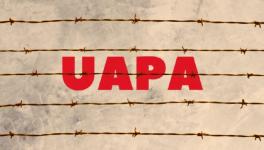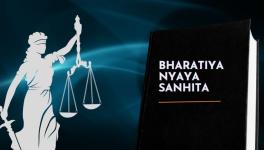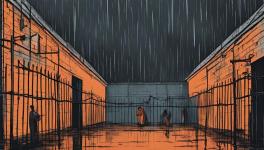Bhima Koregaon: The Process Continues to Clot as Punishment as Another Year Passes by

Many of the accused in the Bhima Koregaon–Elgar Parishad case have now spent one more year incarcerated without a trial. A far cry from the verbiage of high judicial officials that even a day’s denial of liberty is too much.
—
On August 5 this year, Vernon Gonsalves and Arun Ferreira walked out of the Taloja Central Jail after the Supreme Court had granted them bail.
The two were beaming from ear to ear and there was such a spring in their step that not even the syntax of still photography could constrain it.
These images were widely carried by the new media and activist portals. The reportage and commentary was largely celebratory and laudatory.

What could be a more telling sign of the pandemic of cynicism that has engulfed the world in general, and the ‘world’s largest democracy’ in particular?
What were people celebrating exactly?
That after spending five years behind bars without a trial on accusations of being involved in the Bhima Koregaon–Elgar Parishad Maoist links and criminal conspiracy case, the two activists were finally ‘free’ (although with tethers)?
That ‘law had taken its own course’?
That the duo might eventually join the 97.2 percent ‘lucky ones’ who were acquitted in cases under the Unlawful Activities (Prevention) Act, 1967. Against all odds, as is obvious!
Who is going to be responsible for biting five years off their lives?
Leave aside responsibility, is even an explanation forthcoming? Do we even have a remote expectation that someone will offer a clarification?
Can we hope that what happened to the two of them will not be repeated ad nauseam with thousands of others?
Another year in the Bhima Koregaon–Elgar Parishad saga leaves the bitter aftertaste of these questions in the mouth.
Here is a recap of the major developments in the case this year, of bail applications granted, stayed and pending; the consistent pleas for the National Investigation Agency (NIA) to comply with the Code of Criminal Procedure (CrPC), 1973; and the courts heeding to medical conditions-related pleas of the accused.
Background
In connection with the case, on June 6, 2018, Pune police arrested several activists, lawyers and academics.
These included human rights lawyer and Dalit rights activist, Surendra Gadling; Dalit rights activist and editor of the Marathi magazine Vidrohi, Sudhir Dhawale; activist and researcher, and member of the Committee for the Release of Political Prisoners, Rona Wilson.
What could be a more telling sign of the pandemic of cynicism that has engulfed the world in general, and the ‘world’s largest democracy’ in particular?
Former head of the English department at Nagpur University, and Dalit and women’s rights activist, Shoma Sen; and forest rights activist and former fellow of Prime Minister’s Rural Development Fellowship Programme of the Union Ministry of Rural Development, Mahesh Raut were also arrested.
On August 28, 2018, activist, poet, writer and teacher Dr P. Varavara Rao; trade unionist, activist and lawyer, Sudha Bharadwaj; Arun Ferreira; Vernon Gonsalves; and human rights activist and journalist, Gautam Navlakha were arrested and lodged in Mumbai’s Taloja Central Jail.
In the subsequent months, scholar, writer and civil rights activist, Dr Anand Teltumbde; tribal rights activist and Jesuit priest, Father Stan Swamy; anti-caste activist and academic, Hany Babu; and musical performers, anti-caste activists and members of the cultural troupe Kabir Kala Manch, Sagar Gorkhe, Ramesh Gaichor and Jyoti Jagtap, were also arrested.
Trial is yet to begin in the Bhima Koregaon case. The prosecution in the case has filed a chargesheet exceeding 5,000 pages and intends to cross-examine at least 200 witnesses.
Ten of the 16 accused persons are presently incarcerated, having now spent two to almost five years in judicial custody without trial.
In addition to Gonsalves and Ferreira, who were granted bail in 2023, five of the other accused persons, Sudha Bharadwaj, Varavara Rao and Anand Teltumbde, Mahesh Raut and Gautam Navlakha have also managed to secure bail so far.
Of these, Bharadwaj, Rao and Teltumbde have been released while Raut and Navlakha continue to be behind bars, their bail having been stayed.
Father Stan Swamy, passed away in judicial custody in July 2021 after contracting Covid in prison while awaiting bail on medical grounds.
Bail to Gonsalves and Ferreira
After having reserved bail judgment for almost four months, the Supreme Court granted regular bail to Gonsalves and Ferreira on July 28.
A division Bench of the Supreme Court, comprising Justices Aniruddha Bose and Sudhanshu Dhulia, had reserved its judgment on the bail applications on March 4.
The duo had filed bail applications at the Supreme Court challenging the Order of the Bombay High Court dated October 15, 2019, rejecting their bail pleas.
Another year in the Bhima Koregaon–Elgar Parishad saga leaves the bitter aftertaste of many questions in the mouth.
The Bench held that since Gonsalves and Ferreira had been in custody for almost five years, bail is allowed to protect their rights under Articles 14 and 21 of the Constitution of India.
The bail judgment holds that the letters recovered from the other co-accused persons, witness statements, or the mere possession of literature propagating violence or promoting the overthrow of democratically elected government, does not prove that the two accused were involved in terrorist acts within the definition of the UAPA.
The court disagreed with the ratio of the judgement in the National Investigation Agency versus Zahoor Ahmad Shah Watali (2019) on the issue of admissibility.
While Watali held that courts should not go into the question of admissibility of the evidence produced by investigation agencies, the bail judgment urged a “surface analysis of the probative value of the evidence” at the stage of examining the question of granting bail.
The quandary of mobile phone tethering
The Bench directed the NIA’s special court to set such conditions as necessary, including requiring the duo not to change their mobile phones, keep them active and charged at all times, keep the location status of the mobile phones ‘active’ all through the day, and pair the devices with the devices of the investigating office of the NIA.
The bail conditions intended to keep the duo tethered to the authorities at all times.
Sardonically, it was the NIA itself that expressed reluctance to comply with the bail conditions.
On August 17, an NIA special court of judge Rajesh Katari, while hearing the issue of non-compliance with the bail condition of pairing devices, suggested the installation of apps that can assist in pairing and tracking the devices on the mobile phones of the accused and the NIA officials.
To this, the counsel representing the NIA raised concerns about the possible infringement of privacy of the concerned investigating officers of the NIA if the devices were to be paired!
Bails granted, stayed
A disturbing new trend that also developed this year was the staying of bail Orders. The Bombay High Court granted bail to two accused persons in the Bhima Koregaon matter— Raut and Navlakha— while also allowing a stay on the bail Orders to allow the NIA to appeal in the Supreme Court.
Raut and Navlakha continue to be incarcerated despite being granted regular bail on the merits of their cases.
Mahesh Raut
On September 21, the Bombay High Court granted regular bail to Raut. The Bench, however, stayed the Order for one week at NIA’s request.
On June 6, 2018, Raut, along with five other accused persons, was arrested for allegedly spreading Maoist ideology, providing funds to banned organisations and conducting recruitments for the Maoists.
Trial is yet to begin in the Bhima Koregaon case. The prosecution in the case has filed a chargesheet exceeding 5,000 pages and intends to cross-examine at least 200 witnesses.
Raut has been lodged in the Taloja Central Jail for the last five-and-a-half years, awaiting trial.
Raut’s bail application, filed in 2022, challenged the rejection of bail pleas by a sessions court in Pune in 2019 and an NIA court in Mumbai in 2021.
While allowing the stay on bail Order, the division Bench of the high court comprising Justices A.S. Gadkari and Sharmila U. Deshmukh had referred to an Order granting bail to Dalit scholar, academic and activist, Dr Anand Teltumbde— a co-accused in the Bhima Koregaon case, where the NIA sought a similar stay.
Raut, however, continues to be held in prison, since the appeal by the NIA has remained pending in the Supreme Court for over three months.
Raut’s matter has been adjourned four times for various reasons, including ‘paucity’ of time and adjournments sought by the NIA.
Gautam Navlakha
On December 19, the Bombay High Court, comprising Justices A.S. Gadkari and Shivkumar Dige, granted bail to Navlakha, while also allowing a stay of three weeks on the bail Order.
Arrested on August 28, 2018, Navlakha was initially kept under house arrest, and subsequently sent to judicial custody in April 2020. Following the acceptance of his plea in the Supreme Court, he has been under house arrest since November last year.
On March 2 this year, the high court directed the special NIA court to rehear the bail plea for its reconsideration, averring that a special NIA court had rejected Navlakha’s September 2022 bail application without proper reasoning.
On April 6 this year, after adjudicating and reconsidering the submissions, the special NIA court had again denied bail to Navlakha.
The Supreme Court is also seized of issues concerning Navlakha’s house arrest, including his plea for the change of location of house arrest.
After having reserved bail judgment for almost four months, the Supreme Court granted regular bail to Gonsalves and Ferreira on July 28.
On April 28, the Supreme Court had directed Gautam Navlakha to pay ₹8 lakh towards the cost of deploying police personnel for his house arrest, which was granted to him by the court in November last year.
Notably, Additional Solicitor General of India S.V. Raju, representing the NIA, stressed that Navlakha needs to deposit ₹66,00,000 towards the cost of the house arrest.
Navlakha had deposited ₹2,40,000 towards the cost of deploying police personnel, as per the terms of the Order of house arrest.
In February and May, the NIA opposed Navlakha’s plea for moving the place of house arrest to Delhi and Alibaug respectively.
On September 1, the Supreme Court adjourned the hearing of Navlakha’s plea for transfer of house arrest to Alibaug by eight weeks, given the then ongoing hearing of bail application in Bombay High Court.
The Bench comprising Justices M.M. Sundresh and J.B. Pardiwala, however, expressed “reservations” over the grant of house arrest to Navlakha by the predecessor Bench.
“Without going into the merits of the case, this [Order granting house arrest] might set a wrong precedent” in respect of “facilities [ensured] for one person”, Justice Sundresh had remarked.
Pending bail pleas
On May 4, the Supreme Court issued notices in the bail pleas by anti-caste activist and musical performer, Jyoti Jagtap; and women’s rights activist and academic Shoma Sen.
While Sen’s bail hearing was expedited and part-heard, Jagtap’s bail plea is yet to begin.
Hearing expedited
Sen’s petition before the Supreme Court is for the determination of a substantial question of law: whether the high court was correct in its refusal to examine the trial court’s Order on the ground that during the pendency of Sen’s application before the high court, the investigation was transferred to the NIA.
In addition to Gonsalves and Ferreira, who were granted bail in 2023, five of the other accused persons, Sudha Bharadwaj, Varavara Rao and Anand Teltumbde, Mahesh Raut and Gautam Navlakha have also managed to secure bail so far.
Sen has been incarcerated as an undertrial since June 6, 2018, and is lodged at the Byculla jail in Mumbai, awaiting trial.
On November 2 and 23, the Supreme Court had allowed adjournment sought by the NIA.
Senior advocate Anand Grover, appearing on behalf of Sen, had decried the repeated pleas of adjournment by the NIA in the matter.
Grover had stressed that Sen has been lodged in jail for five-and-a-half years without trial and the bail hearing before the Supreme Court has been pending for five-and-a-half months.
On November 28, the Supreme Court allowed yet another adjournment due to the indisposition of the Additional Solicitor General of India S.V. Raju, representing the NIA.
On November 30, Grover prayed for the court to grant medical bail on the ground that Sen is suffering from multiple ailments.
As the Bench expressed its inclination to grant medical bail for four weeks and to hear arguments on regular bail in the meantime, Nataraj responded that he was ready to argue the matter of the regular bail.
Allowing the matter to be fast-tracked, Sen’s regular bail plea was posted to be heard in a week.
On December 6, the Supreme Court division Bench comprising Justices Aniruddha Bose and Augustine George Masih partly heard a regular bail application of Sen.
Grover took the court through the chargesheet filed against Sen in this case.
Justice Bose made a reference to the Watali judgment and stated that the court need not go into the probative value of the recovered materials.
Sardonically, it was the NIA itself that expressed reluctance to comply with the bail conditions.
However, Grover reiterated that the court must take into consideration the principles laid down by the Supreme Court of Union of India versus K.A. Najeeb (2021). Grover also referred to the Vernon versus State of Maharashtra & Anr (2023) to substantiate his claims.
Bail judgment “formula”
On August 22, the Supreme Court inquired whether the “formula” adopted in granting bail to Gonsalves and Ferreira could be applied to Jagtap’s bail plea.
Jagtap has been incarcerated as an undertrial since September 8, 2020, and is lodged at the Byculla jail in Mumbai.
Jagtap’s bail plea challenges the Order of the Bombay High Court, dated October 17, 2022, which rejected her appeal which was filed against the Order of an NIA special court, dated February 14, 2022, under which her bail application was rejected.
According to the high court, Jagtap was involved in a “terrorist act” by organising the Elgar Parishad event and associating with prominent members of the banned organisation Communist Party of India (Maoist).
On December 7, the court said it would hear Jagtap’s bail plea after Sen’s bail plea had been heard, posting the matter for the third week of January next year.
Compliance under Section 207 of CrPC
Accused persons in the Elgar Parishad–Bhima Koregaon case have claimed that the NIA has inordinately delayed giving them access to copies of important evidence in the case.
The evidence exists in the form of cloned copies of electronic material purportedly recovered from the accused.
The accused persons have filed applications for the NIA to comply with Section 207 of the CrPC. The provision mandates supplying to the accused a copy of certain documents relied upon by the prosecution, without delay and free of cost.
Such documents include the police report, the first information report recorded under Section 154, the statements recorded under Section 161(3) and Section 164, and any other document forwarded to the magistrate under Section 173(5).
Accused persons in the Elgar Parishad–Bhima Koregaon case have claimed that the NIA has inordinately delayed giving them access to copies of important evidence in the case.
The applications have been awaiting the NIA’s compliance for over four years. They are currently pending before an NIA court of special judge Rajesh Kataria, having allowed NIA the time to comply through the year.
In 2021, Arsenal Consulting, a leading, independent expert firm on digital forensics, revealed in four reports that sophisticated malware was used to plant the digital evidence that forms the basis for the prosecution’s case on the devices of two of the accused persons in the case, Surendra Gadling and Rona Wilson.
On June 5 this year, Surendra Gadling, a co-accused in the Bhima Koregaon case raised the grievance that despite filing several applications with the investigating authorities under Section 207 of the CrPC, he has not been allowed access to the compact disks. The court called for a reply from the authorities.
During a hearing on June 18, the court directed the special public prosecutor appearing for the NIA, Prakash Shetty, to file an affidavit in respect of the electronic evidence that was seized from the accused persons and ensure compliance by providing them with copies.
On July 1, the accused persons emphasised that the NIA had failed to comply with the Order of the predecessor judge of the NIA court, dated May 23, 2022, that had directed the NIA to furnish a chart of the evidence. They prayed to the court to direct the NIA to submit a chart consisting of the details of electronic devices seized in the case.
According to the accused, the NIA’s affidavit states that it supplied cloned copies of certain electronic devices. However, it fails to clearly establish which cloned copies were supplied and which ones are yet to be supplied.
On September 5, the NIA court had directed the NIA to comply with the Order of the predecessor judge of the NIA court, dated May 23, 2022, and submit a chart containing details of the cloned copies of documents supplied and remaining to be supplied to the accused persons.
The accused persons had argued that the cloned copies of 798 seized documents have still not been provided to them.
A disturbing new trend that also developed this year was the staying of bail Orders.
On September 18, the NIA provided the accused persons with annexures of electronic evidence from the Regional Forensic Science Laboratory, Pune.
The counsels representing the accused persons argued that the seized electronic evidence failed to match the copies of the hard disks provided to them.
The court directed the NIA to file an affidavit declaring that the prosecution would not be relying on any electronic evidence other than those copies of which have been provided to the accused on hard disks.
Subsequently, on October 18, the investigating officer filed an affidavit stating the dates on which the cloned copies or the annexure reports received from the Regional Forensic Science Laboratory (FSL), Pune, were given to each of the accused persons.
The NIA claimed that the accused persons had been provided with cloned copies of all the evidence.
The details of the electronic documents included in the cloned copies supplied, as prayed by the accused, do not find a place in the affidavit.
On November 8, Gonsalves and Ferreira filed an application containing a chart of the electronic evidence relied upon by the prosecution.
The chart depicts the portion of cloned copies of the electronic evidence which has been furnished to the accused and the portion of cloned copies of the electronic evidence which is yet to be furnished in accordance with Section 207 of the CrPC.
Gonsalves and Ferreira’s application seeks to challenge NIA’s claim that it has provided copies of all materials relied upon by it to the accused persons.
The saga of NIA’s compliance with Section 207 of the CrPC will continue in the next year.
Medical pleas
The Bombay High Court and the special NIA court heeded the medical pleas of Rao and Gorkhe respectively this year.
Denial of proper medical treatment in prisons
On October 8, the special NIA court directed the jail superintendent of Taloja Central Prison to refer Sagar Gorkhe to J.J. Hospital, Mumbai to provide him with the required medical treatment.
Additional Solicitor General of India S.V. Raju, representing the NIA, stressed that Navlakha needs to deposit ₹66,00,000 towards the cost of the house arrest.
The direction was in respect of an application filed by Gorkhe, praying to the court for urgent and necessary treatment for his mental and physical health.
According to Gorkhe, although he was diagnosed with ‘psychiatric problems’ and was on medication prescribed by a visiting psychiatrist in Taloja Central Prison, the psychiatrist has not visited him for almost a year.
The medicines prescribed by the psychiatrist were discontinued and the chief medical officer of the prison has not attended to his psychiatric issues, his plea stated.
The application claimed that the prison authorities consistently denied access to Gorkhe’s medical records and proper and regular care of a competent psychiatrist.
In addition, Gorkhe suffers from spine and back issues, the application stated.
Travel for surgery
On October 23, the Bombay High Court granted Rao permission to travel to Hyderabad for a week to undergo cataract surgery in his right eye.
After being incarcerated for four years, the 82-year-old Rao was granted medical bail by the Supreme Court on August 10, 2022.
His bail conditions included prohibition from leaving the city limits of Mumbai without the express permission of the NIA court. The Bench had allowed Rao to seek medical attention of his choice, but he is required to keep the NIA apprised of any such development.
Rao had approached the high court after the NIA court rejected his plea on September 23 last year.
On October 23, the Bombay High Court granted Rao permission to travel to Hyderabad for a week to undergo cataract surgery in his right eye.
In his application, Rao had averred that travelling to Hyderabad would allow him to undergo surgery free of charge since the cost of the surgery in private hospitals in Mumbai was unaffordable.
A division Bench of the high court comprising Justices A.S. Gadkari and S.C. Chandak had directed Rao to approach the NIA court for surgery for the other eye, after returning to Mumbai following the first surgery.
On November 29, the NIA court allowed Rao to travel to Hyderabad to undergo cataract surgery on his left eye.
In another era, James Joyce wrote:
“My methods are new and are causing surprise:
To make the blind see I throw dust in their eyes”
Close your eyes for a moment and think of what it means for an 82-year-old ailing poet to seek repeated and independent permissions for restoring the sight of his eyes.
Think of what the New Year means for all those incarcerated without a trail for another year.
No wonder the country of blind is becoming dustier by the day.
Arif Ayaz Parrey is Editor, The Leaflet.
Sarah Thanawala is a staff writer at The Leaflet
Get the latest reports & analysis with people's perspective on Protests, movements & deep analytical videos, discussions of the current affairs in your Telegram app. Subscribe to NewsClick's Telegram channel & get Real-Time updates on stories, as they get published on our website.











